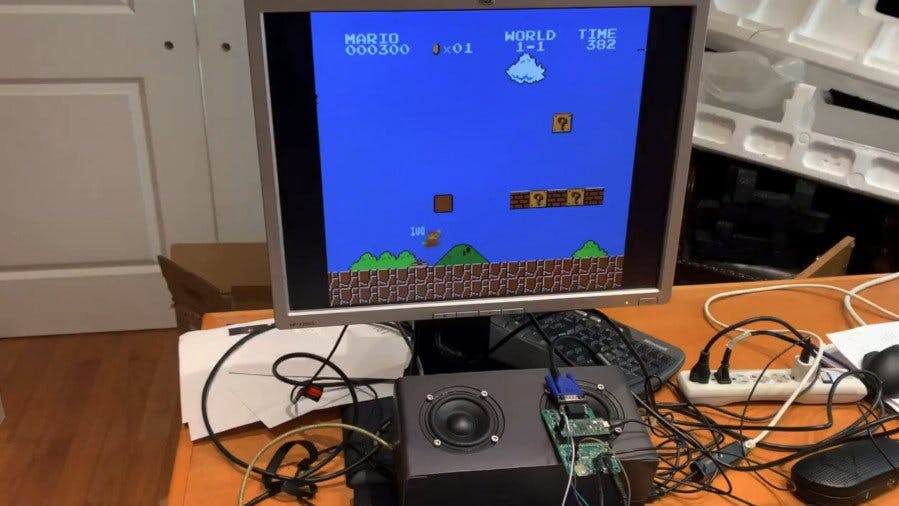
Please ensure that JavaScript is enabled in your browser to view this page.
Developer Ben Stragnell has pushed the Raspberry Pi Pico board to its limits, writing a fully-functional Nintendo Entertainment System (NES) emulator which runs on the RP2040 microcontroller — including VGA video and PWM audio outputs.
Launched late last month, the Raspberry Pi Pico is the first outing for the company's in-house RP2040 microcontroller — a dual-core Arm Cortex-M0+ part with some interesting features, including a 133MHz or higher clock speed and programmable input/output (PIO) blocks which can be used to add functionality otherwise missing from the stock peripherals.
To prove its capabilities, Stragnell set himself a challenge: To emulate Nintendo's classic Nintendo Entertainment System (NES) eight-bit games console, complete with video and audio — no small feat on a device which lacks both video and audio outputs.
"Here's a Raspberry Pi Pico pretending to be a NES," Stragnell posted to Twitter in celebration of his success. "The RP2040 is an amazing piece of work — congratulations to everyone involved. This is a $4 microprocessor board simulating a 6502 plus all the NES hardware (PPU, APU) while bit-banging VGA signals and PWM audio. And it works when clocked at less than half the default speed!
"It's actually entirely C and ARM/Thumb asm [assembly]. But (fun fact): Most of the asm is auto-generated from one of the ugliest Ruby scripts in the world! [The emulator is] 100% custom, but it was instructive to look at some other emus to see how they handled some of the more esoteric PPU stuff. I was concerned about getting existing implementations to run fast enough, since I was targeting 48Mhz. However, given that the actual silicon is so much faster than 48Mhz it might be a worthwhile project to try a proper port [of an open-source NES emulator.]"
Stagnell has not yet published the source code for the project, but additional details are available in the Twitter thread.
Hackster.io, an Avnet Community © 2024
